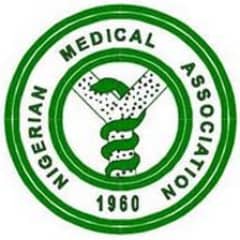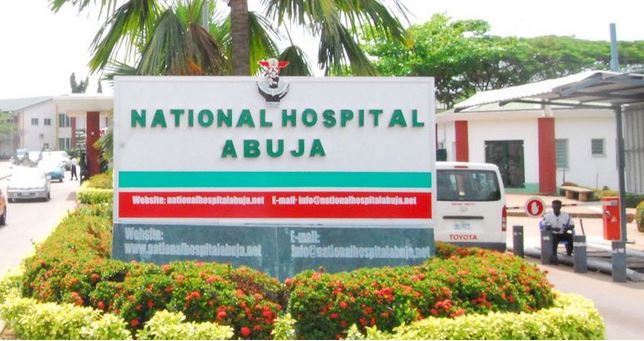
Daniel Otera
A fresh crisis is unfolding in Nigeria’s Federal Capital Territory as the Nigerian Medical Association (NMA), FCT Branch, has issued a 14-day ultimatum to the management of the National Hospital, Abuja, over the dismissal of three medical doctors who were engaged as locum consultants for three years.
With the first phase of the strike due to begin on 15 June and a full-scale indefinite shutdown looming from 30 June 2025, the situation presents a major threat to public health services in the capital territory.
At the centre of the dispute is the dismissal of three doctors who, according to the NMA FCT, were employed under locum consultancy arrangements for three years but were suddenly disengaged.
The association describes the action as ‘selective victimisation’, highlighting that 30 doctors were engaged under the same terms, yet only three were sacked.
Locum contracts short-term, often renewable engagements have become commonplace in Nigeria’s underfunded public health institutions. While such arrangements offer flexibility for hospital management, they also create a precarious working environment for medical professionals, who operate without the full rights and protections afforded to permanent staff.
According to available data from the Nigerian Medical Association and international medical registries, the casualisation of medical professionals remains a growing concern within Nigeria’s public health system.
Reports indicate that a significant proportion of government-employed doctors in tertiary hospitals work under locum or temporary contracts. While official national statistics remain limited, several assessments suggest that up to four in every ten doctors in some federal health institutions may be engaged on a non-permanent basis.
This practice, often characterised by unstable employment terms and limited job security, has become particularly troubling in the face of Nigeria’s escalating medical brain drain. As of August 2022, the United Kingdom’s General Medical Council recorded over 10,000 Nigerian-trained doctors practising within its borders. When combined with those who have migrated to Canada, the United States, and Saudi Arabia, estimates from the Nigerian Medical Association place the total number of Nigerian-trained doctors practising abroad at over 15,000.
This ongoing exodus continues to place considerable strain on Nigeria’s healthcare workforce. The lack of clear career progression pathways, coupled with casual employment arrangements and poor working conditions, has been cited as a major push factor. With many hospitals now dependent on a fluctuating pool of locum staff, concerns have been raised about the sustainability of service delivery and the quality of care provided to the Nigerian population.

The dismissal of three locum consultants in a federal facility particularly after long-term engagement without formal integration speaks to broader issues of labour insecurity, underemployment, and institutional opacity in Nigeria’s healthcare sector.
While the management of the National Hospital, Abuja, has yet to issue a public response, the NMA’s letter dated 13 June 2025 and signed by its FCT Chairman, Dr Ayogu Emeka, and Assistant Secretary, Dr Usman Hafiz outlines a timeline of ignored advocacy efforts. These include entreaties from senior NMA officials and visits by a high-level committee of medical professionals to avert escalation.
The planned strike follows a familiar pattern in Nigeria’s healthcare landscape, where industrial action often emerges from unresolved disputes around remuneration, conditions of service, or perceived injustice. However, the timing of this crisis is particularly alarming.
Nigeria’s public health sector is already burdened by an estimated 58% shortfall in clinical personnel, a crisis exacerbated by years of underinvestment and mass migration of healthcare workers.
According to the most recent national estimates, the country currently has one doctor for every 4,173 citizens drastically below the World Health Organization’s recommended ratio of one doctor per 600 people. Even brief disruptions in service delivery place enormous pressure on already overstretched facilities.
In Abuja, the National Hospital alone handles hundreds of outpatient consultations, emergency cases, surgeries, and maternal care daily.
A strike at such a facility, particularly one that escalates to involve all public-sector doctors in the Federal Capital Territory, threatens to paralyse essential health services. For low-income residents who rely almost exclusively on public hospitals, the consequences could be severe.
Beyond the direct implications of the strike, the NMA letter also flags a less visible but equally critical consequence: the mental health toll on healthcare workers. Doctors, already operating in high-stress environments with limited support, now face what the association calls “anxiety, reduced productivity, and financial insecurity”.
Recent studies and reviews point to an alarming rise in mental health challenges among healthcare professionals in Nigeria, including burnout, depression, and suicidal ideation. A multicentre study conducted during the COVID-19 pandemic reported that between 41.7% and 75% of Nigerian doctors experienced burnout, citing factors such as poor working conditions, excessive workload, and the stress of understaffing. A separate study from a private hospital in Abuja found that up to 85% of healthcare workers reported symptoms of burnout, with many citing emotional exhaustion and a lack of professional support.
A systematic review of burnout among Nigerian doctors covering studies from 1970 to 2017 further revealed burnout rates ranging from 23.6% to 51.7%, especially among early-career practitioners. These findings align with growing concerns that the mass emigration of medical professionals, coupled with insecure employment conditions and persistent underfunding, is worsening mental health outcomes across the healthcare sector.
If not resolved, this dispute could signal a new phase of instability in Nigeria’s medical sector.
The ultimatum issued by the NMA includes a clear escalation pathway: a two-week preliminary strike from 15 to 29 June, followed by a total and indefinite walkout beginning 30 June.
Should the dismissal not be reversed within one week of the indefinite strike’s commencement, all NMA-affiliated doctors in the FCT would down tools effectively shutting down public healthcare delivery across the territory.
This development comes at a time when Nigeria is still reeling from the aftershocks of global health emergencies, prolonged economic downturns, and the persistent challenge of retaining skilled medical personnel.
According to a World Health Organization projection, the global shortage of healthcare workers could reach 10 million by 2030, with sub-Saharan Africa expected to bear the brunt of the crisis. Nigeria, already grappling with multiple economic recessions and chronic underfunding in the health sector, has seen a significant exodus of doctors and other health professionals in recent years, intensifying pressure on the already overstretched system.
The compounding effects of these systemic challenges continue to undermine healthcare delivery across the country, especially in public hospitals, where poor working conditions, delayed salaries, and job insecurity have made it increasingly difficult to attract and retain competent professionals.
